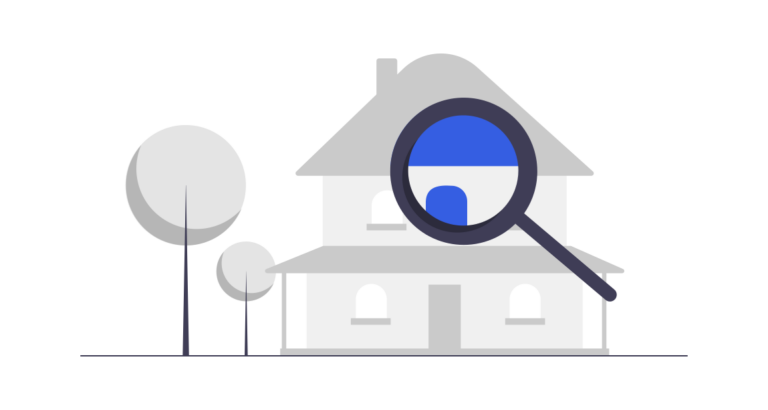This is an extensive guide on what is involved in arranging a house valuation for probate and preparing for sale. You will also learn how to increase the value of the property, without any up front investment.
A quick thank you to Sail Homes for providing some of this content. Sail Homes can help with:
Property valuations for probate services
Selling a probate property
Renovating probate property to maximise sale value without any upfront investment.

A property valuation for probate assesses the value of a deceased person's property. It also helps understand how much needs to be paid for inheritance tax purposes.
The property valuation is usually carried out by a professional valuer. This could be a surveyor, estate agent or a probate property professional.
The valuer will assess the condition, location, and features of the property. There may be other factors affecting the value of the property. Such as the construction type, valuable fixtures and fittings or other property improvements.
Valuing the estate for probate is one of the first tasks that need to be done. This is because a Grant of Probate (or if there is no will, letters of administration) cannot be obtained until you have completed the inheritance tax forms.
The executor of the estate is typically responsible for organising a probate valuation. If the property is jointly owned, both owners may need to be involved in the valuation process. It is important to ensure that all parties agree on the valuation of the property.
Arranging a probate valuation on property is an important step in the probate process.
Obtaining an accurate probate property valuation is essential for several reasons:
It helps to determine the amount of inheritance tax that will be due on the property. Inheritance tax is payable to the HMRC on the value of the estate of a deceased person. The amount payable depends on the value of the estate i.e. the value of property and assets that the deceased owned.
It ensures that the correct amount of tax is paid. This is important to avoid any penalties or legal issues.
It ensures beneficiaries of the estate receive a fair distribution of the assets. An incorrect valuation could lead to an unfair distribution of assets.
An accurate valuation can help to speed up the probate process. It will reduce any friction on the value of the estate and thus help prevent delays.
The unknown inheritance tax burden can be stressful for executors. Particularly as Inheritance Tax must be paid to the HMRC before the estate is distributed. Having an early valuation can help the executor of the estate plan to fund this expense.
When arranging a probate valuation of property, the following factors need consideration. This will help you brief the valuer on what you are looking to achieve:
The location of the property. This is a crucial factor in determining its value. A property in a desirable area, with near to local amenities will increase its value. A property in a poor crime area would have a negative effect.
Outstanding mortgages or loans. These must be considered when valuing a property for probate purposes. Outstanding debts can reduce the value of the estate.
Renovations or improvements to the property. These can increase the value of the property, compared to others of a similar type.
Other assets owned by the deceased. These can also affect the valuation of the estate. Such as if the deceased owned other property, shares or investments.
Taking these factors into consideration ensures an accurate valuation of the estate.
If you are unsure about the value of your property, it is always best to consult with a professional property valuer, like Sail Homes.
Before you appoint a valuer, it is useful to understand what is included in a house valuation. This will help you prepare and ensure the property is looking its best.
The property valuer will usually visit the property and inspect:
The exterior
The interior (including any loft or basement spaces)
The garden or land; and
Outbuildings
The valuer will also consider the following:
Location. The property's location can significantly impact its value. Such as the area's desirability, accessibility, and proximity to local amenities. These will all have a baring on the property value.
Condition of the property. The valuer will consider any visible defects inside or outside the property. It may be advisable to redecorate the property or fix any defects (such as cracks or damp) beforehand.
Renovations or Improvements. These may also increase the value of the property.
Size and layout. The size of the overall property, number of bedrooms and living space will be considered. As well as the property's overall layout.
Property Features. If the property has any unique features, these will be factored into the valuation. Examples could include period features, extensions, or modern fittings.
Comparable property sales. The valuer will consider recent sales of comparable properties in the area. This will be considered with their other findings to determine the property's value.
The valuer may also consider any outstanding mortgages or loans on the property.
Once the valuer has considered all of the above factors they will write their report. The report will outline the estimated property market value for use in the probate process.
You could estimate the property yourself, using a tool like Zoopla. However, this is risky as an accurate valuation requires expertise and experience
So, it is advisable to seek out the services of a professional such as:
An Estate Agent. Are often used for probate property valuations. They will have good local market knowledge and will provide an accurate valuation.
A RICS Surveyor. A qualified professional who can provide a detailed and accurate valuation. They have extensive knowledge of property and factors that may impact property value.
To arrange a house valuation for probate property, follow these steps:
Find a reputable valuer. Look for a professional valuer offering probate property valuations. Your probate advisors might have a valuer they recommend. Or Insuristic can help you obtain a professional valuation from one of our partners.
Contact the valuer. Once you have found a valuer, contact them and provide details about the property. This includes the address, size, condition, and any other relevant information. You should also ask about the valuer's fees and how long the valuation process will take.
Schedule the valuation. Once you have agreed on the fee, agree a timeline for the report plus a date and time for the valuation to take place. On the day, you will need to make sure the valuer has access to the property. They will also need to see documentation, such as the deeds and any other property survey reports.
Attend the valuation. It is not necessary for you to attend the valuation. But it may be helpful to provide any other useful information about the property. It also gives you the opportunity to answer any questions they may have.
It can be difficult to know where to start when working out the value of all the contents in the home. It is even harder when the contents are not your own.
Here are some tips that might help you.
Contents are items not fixed to the fabric of the building. Imagine if you could pick the house up, tip it upside down. Anything that would fall out would be contents. Anything that remains is included in the property valuation.
Make a list of any items that you think might hold some value. Start with obvious items like cars, jewellery or furniture. Look at how much these items (or similar ones) sell for online.
A jeweller can help you value expensive jewellery items.
For items such as antiques, artwork or collectibles, it's best to get a professional valuation.
If you don't want to value the contents of the house yourself there are companies that can do this for you for a fee.
If you don't think the house contents have any value, you could use a house clearance company to empty it for you.
The time it takes to obtain a house valuation for probate can vary depending on a number of reasons such as:
The size and location of the property
The availability of a valuer; and
The complexity of the estate
A property valuation can take anywhere from a few days to several weeks to complete.
You should also consider the timing of the valuation. This can be important if there is a deadline for submitting the probate application.

Preparing a probate property for sale can be a daunting task. You should ensure the property is in its best condition ready for potential buyers to view.
Here are some steps that can help you prepare a probate property for sale:
Get a number of property valuations for probate. Before putting the property on the market, it's essential to get it a professional valuation. It may be advisable to get a few for comparison. The valuations will help you set the right price for the property.
Clear out the property. The first step in preparing a probate property for sale is to clear it out. Remove all personal belongings and clutter from the property. This will make it easier to clean and stage the property. It will also help potential buyers envision themselves in the space.
Clean the property. Once the property is cleared out, it's time to clean it. Deep clean the property, including the floors, walls, windows, and bathrooms. Consider hiring a professional cleaning service to ensure that the property is spotless.
Make any necessary repairs. You should do this before the property is valued and put on the market. Repair areas of damp, cracks or leaks. Repair or replace broken fixtures. You should also check that all electrical and plumbing systems are working.
Get advice from estate agents. As it is their job sell the property for you, they will likely have a lot of advice for you to consider.
Focus on property presentation. This could involve redecoration, rearranging furniture or adding furniture to the property. You should also remove any unnecessary clutter.
Don't neglect the outside of the property or the garden. The first impression is crucial, so make sure the property's exterior looks inviting. After all, a prospective buyer may do a drive by before arranging a viewing.
Consider:
repainting or changing the front door
cut the lawn and trim bushes,
adding new flowers or potted plants
It is important to make the home as appealing as possible to potential buyers.
The process of preparing probate property for sale can be a time-consuming process. But do this right, you could increase the sale price of the property.

Probate property can sometimes sell for less than its potential value in the market.
This is usually because inherited properties need some restoration or modernisation. You've probably already got a lot on your plate and a project like this might be too much to take on. The upfront cost alone can often make this too difficult to do.
But thankfully there is another way.
Sail Homes can help you increase the property value without upfront investment. Sail are accredited members of the Property Ombudsman. They can fund the works and manage the project from start to finish, including:
The initial valuation
Making recommendations for improvement and advising on the potential uplift in value
Planning and managing the project
Carrying out the work
Selling the property
How much does this service cost?
Nothing. This is a free upfront loan to improve the property. Sail only take a cut of the profit when the property sells.
How do Sail Homes make money?
When your property sells, Sail Homes will recover the costs of refurbishment. They do this by taking a 15% cut from the increased property value. This means you make an extra 85% profit and don't lose any money.
So if the house was valued at £200,000 but with improvement it makes £300,000:
Sail would recover £15,000 from the sale of the property; and
You would make an extra £85,000 without any additional cost.

The executors have a responsibility to protect the assets of the estate. If there is property, it needs to be insured until it is distributed to beneficiaries.
You shouldn't wait until the probate process has started. You should look to replace the existing insurance not long after the date of death. This is because the existing insurers may not want to insure the property if it is going to be empty for more than 30 days.
You would also need to arrange the insurance in the name of the estate. This is because if there is a claim, the proceeds need to go the estate.
Insuring the property incorrectly could be a costly mistake for the executors. Without insurance, the beneficiaries could require the executors to reimburse the estate.
Thankfully Insuristic makes this easy. It has developed a product specifically for insurance unoccupied property during probate.
If you buy a policy from Insuristic:
The insurance can be arranged in the name of the estate.
You can insure the buildings only or include contents cover
There is no need to drain down water systems if this isn't practical. As escape of water claims are common, Insuristic would cap any escape of water claim at £5,000.
If you can drain down the water systems, there would be no cap and no requirement to keep the heating on in the winter.
Inspection periods are only required every 30 days. The inspection can be anyone with the permission of the executors. You will only need to take a photograph of the inside and outside to evidence the inspection.
You can find out more on our probate house insurance page.
If you want to find out more about the various insurance covers you should consider as an executor, check out our guide to executor insurance.
Here are the answers to a number of questions commonly asked about:
property valuations for probate purposes;
preparing probate for sale;
and improving the probate property.
You should not view the answers as advice. If you need help, you should find a qualified probate practitioner who can provide advice. Alternatively, click get a property valuation below to arrange a call with one of our partners.
A house for probate purposes is an assessment of the value of a deceased person's assets.
Typical assets for probate include:
Property
Savings
Investments
Personal possessions
If you need help, it is worth talking to a professional estate planner or probate provider. They can usually help arrange a probate valuation of estate assets.
The valuation takes into account the current market value of the assets at the time of the person's death. It is used to ensure that the correct amount of inheritance tax is paid on the estate before it is distributed. If the inheritance tax is underpaid the estate will need to replay the difference plus a fine.
A probate valuation is required when someone passes away and leaves behind assets.
It is one of the first tasks that need to be done. This is because a Grant of Probate cannot be obtained until you have completed the inheritance tax forms. If there is no will, this is called a grant of letters of administration.
To complete the inheritance tax forms, you will need to know the value of the estate. This includes the property, personal possessions and other assets owned by the deceased.
Here are some examples of when you may need a probate valuation:
The deceased owned probate or other assets that you need to value for probate purposes.
You're an executor or administrator of the estate and are required to value the estate.
You need to understand the amount of inheritance tax that needs to be paid to the HMRC.
A fair market value of the assets needs to be obtained prior to the estate being distributed.
If Inheritance tax is payable, it will need to be paid at the end of the sixth month after the person has died. It can take months to value an entire estate, so it is best to arrange a valuation as quickly as possible.
It is possible that you might have to start paying tax before the estate has been fully valued.
A probate valuation usually covers all the assets of a deceased person's estate. These can include:
Property. Including all the deceased's properties. Usually this is just their primary residence. But some people may have owned investment properties and land.
Personal possessions. These include furniture, artwork, jewellery, and other valuables.
Investments. If the deceased held any stocks, shares, or other investments they should be included.
Debts. The probate valuation will include any outstanding debts the deceased may have had. Examples of debts are mortgages, credit card debts, or personal loans.
You will find this question answered thoroughly on this page. But to summarise, you should arrange a probate property valuation.
You can source a market valuation from:
A chartered surveyor;
Estate agents; or
Some professional probate providers may offer a valuation service.
The valuer will take into consideration various factors such as:
the property's location;
size;
age;
condition;
Repairs or renovations (that are necessary or completed).; and
The local housing market. Including recent sale prices of similar properties in the area.
Yes, some valuers may be able to conduct a remote survey and valuation.
A surveyor may be able to appraise the property in conjunction with someone on-site. Video conferencing technology can be used to conduct a remote property tour. With the surveyor taking pictures and discussing the property with you as they go.
Some valuers might use a desktop services without a physical survey. They can also use data to provide an estimate of the value. Although this may not help you get an optimal valuation.
If the property is valuable, it is usually better to arrange a physical survey.
Probate valuations can differ between surveyors due to a number of factors, including:
Differences in their methods and techniques
The condition and unique features of the property
The valuers level of expertise and experience
The amount of research they conduct;
Recent changes in market conditions; and
Their knowledge of the local property market.
It is therefore important to choose a reputable and experienced surveyor.
The cost of a house valuation for probate purposes can vary depending on several factors such as:
The location of the property
The type of property
The size of the property; and
The level of detail required for the probate valuation property report.
Prices will vary from £150 to £500. If the property is sizeable or specialist, the cost may be upwards of £1,000.
If you work with a probate property valuation specialist you may only need one valuation. If you are relying on an estate agent valuation you may want to get several market valuations. You can then work out an average valuation. Keep in mind though, estate agent valuations are generally only a guide. If you want an accurate valuation you should appoint a RICS surveyor.
Probate value is the estimated value of a deceased person's estate at the date of their death. The value includes any liabilities, debts, or outstanding mortgages on the property.
Open Market value is the estimated amount that a property would sell for on the open market. Market value does not take into account any debts, mortgages, or other financial obligations.
You cannot complete a sale of a property before getting the Grant of Probate. The Grant gives the executor authority to distribute and handle the estate.
The process can start before probate is complete:
The property can be marketed;
The conveyancing process can also begin.
The buyers won't be able to exchange contracts until probate is complete.
It is possible for probate properties to sell for less than similar properties on the market. But this is not always the case.
The sale price of a probate property will depend on a variety of factors, such as:
the condition of the property
its location
the state of the local housing market; and
the marketing strategy used to sell the property.
Factors that may negatively affect the price:
If the property needs repairs and renovations;
The property has been on the market for a long time. This might result in the executors pushing for a quick sale.
The beneficiaries might push for a quick sale, so they can receive their inheritance.
Remember, you can improve the value of probate property without any upfront investment. You can find out more about the Sail Homes solution in the section above.
It is worth getting a professional probate property valuation from the outset. To save on additional administration after the estate has been distributed, because:
If the house sells for less than the probate value, the executors will need to claim back the overpaid tax from the HMRC. This will then need to be redistribute back to the beneficiaries.
If the house sells for more than the estate may need to pay additional tax to the HMRC. This can be messy. When property is involved, you should appoint a probate professional from the outset.
This is the market value of the property. Some Estate Agents call this an open market value. It is the amount the property would be expected to sell for on the open market.
An estate agent will give you an idea of what the property is worth for free. But you should bear in mind that an estate agent cannot provide a formal valuation as this needs to be done by a qualified valuer. Where an estate agent provides a value, this is called a market appraisal.
The downside of using an estate agent is that they may inflate the value of the home to be used as an asking price. This won't be a direct indication of the open market value. An open market value will be more accurate for the purposes of probate.
The upside, is that you can get valuations from multiple estate agents. This can help you work out an average figure to work with.
If you want an accurate probate property valuation, you should appoint a RICS qualified surveyor.
Zoopla is a property website that provides an estimate of a property's value. It is not considered a formal valuation, merely an indication of the value. It should not be used as a probate valuation of an estate.
Further more is advisable to appoint professional probate providers and valuers. This is important to maximise the value of the estate and limit any legal or tax liabilities.

Insuristic Limited is an Appointed Representative of SJL (Worcester) Ltd, who are authorised and regulated by the Financial Conduct Authority with the reference number 763599. This can be checked by visiting https://register.fca.org.uk/s/.
Registered Office: Unit 2, 262 Walsall Road, Cannock, England, WS11 0JL. Registered in England and Wales No: 13926650.
Insuristic is a registered trademark. ©Copyright 2023 Insuristic Limited. All Rights Reserved.
Please Note: Our broking team at SJL Insurance will need to talk to you to discuss your requirements. This is an advised service.
Please Note: Our broking team at SJL Insurance will need to talk to you to discuss your requirements. This is an advised service.
Please Note: Our broking team at SJL Insurance will need to talk to you to discuss your requirements. This is an advised service.
Please Note: Our broking team at SJL Insurance will need to talk to you to discuss your requirements. This is an advised service.
Please Note: Our broking team at SJL Insurance will need to talk to you to discuss your requirements. This is an advised service.
Please Note: Our broking team at SJL Insurance will need to talk to you to discuss your requirements. This is an advised service.